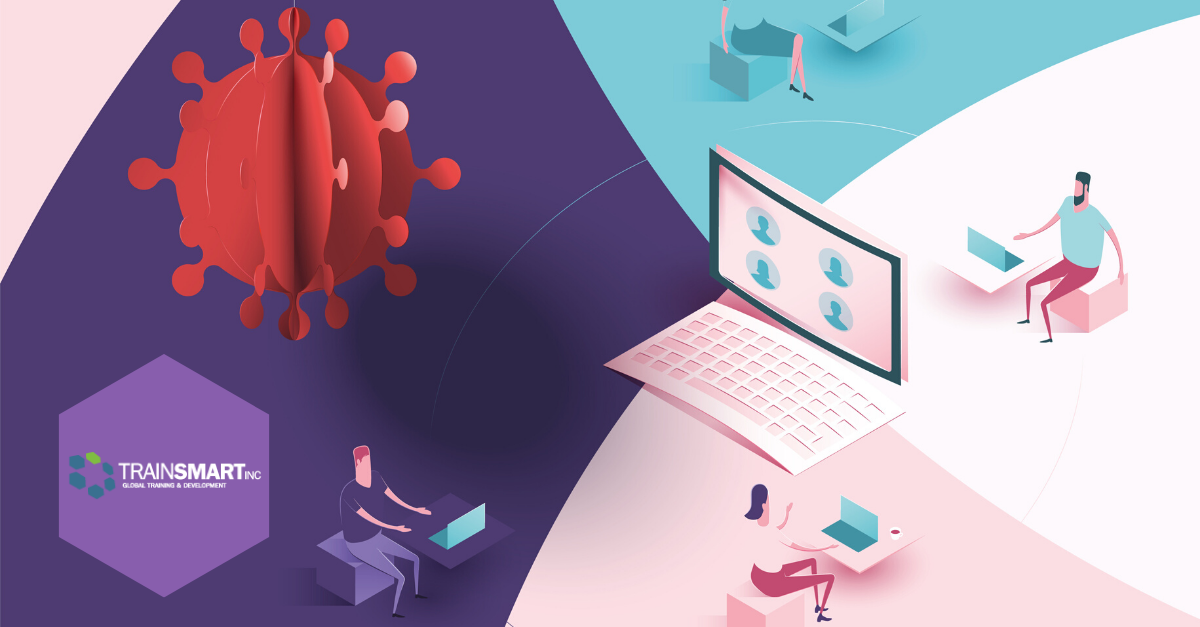
If life had occurred according to plan, the budgets for corporate training in 2020, would have increased over 2019 spending. LinkedIn’s Learning 2020 Workplace Learning Report indicates 37% of L&D departments were anticipating larger budgets. But, as John Lennon famously sang in Beautiful Boy, “Before you cross the street, take my hand, life is what happens to you while you’re busy making other plans.”
Life happened, and L&D departments throughout the world are scrambling to figure out – Now What? If there was ever a time that corporate training needed to be adaptable, it is now. Interestingly, for their employees to exhibit. In order, those top skills were: creativity, persuasion, collaboration, adaptability, and emotional intelligence. Of course, that was before a plague called COVID-19 plagued the workplace like nothing else in our lifetime.
Chances are if you were to survey the same people now about the skills their employees needed to succeed …adaptability would now be leading the chart with a bullet.
COVID-19 Demands A New Focus For Corporate Training
This COVID -19 environment is offering corporate training departments an opportunity to walk the talk like never before. If companies want to have more adaptable employees, then Learning and Development teams can lead the way by modeling adaptability and being transparent about it.
Given that these strategic sessions will, in all likelihood, be conducted on a virtual platform, the team can use these sessions to model adaptability. The L&D team should consider inviting others to attend some of these strategic sessions to demonstrate how they are grappling with how to deliver training and comply with social distancing.
By sharing their journey of adaptability, the learning and development team can provide employees with a roadmap of how they can approach adaptability in their own teams. It becomes a de facto training.
When organizations listed the top five soft skills they wanted employees to exhibit, everyone understood that these skills were desirable because they helped organizations increase productivity and efficiency. For the majority of L&D teams, increased productivity has been their raison d’être for many years.
While increasing productivity and efficiency may have been the top priority when social distancing was a concept that few people had ever heard of, COVID-19 changes everything. Increased productivity and efficiency have no chance of occurring if Learning and Development teams don’t turn their past two years, adaptability was on the top five list of soft skills that organizations said they wanted priority to help employees adapt to their new normals.
Employee Well-Being Should Now Outrank Productivity
Employees working from home need to learn how to work in isolation. They need help in learning how to balance their work while homeschooling children that they never intended to homeschool. They need to learn to adapt to less-than-ergonomic conditions as they create a makeshift office in a closet or corner of the bedroom. They need to learn how to stay engaged with their team members when the only way to see them is in a gallery view on a Zoom meeting.
With routines completely disrupted, employees need guidance on how to work together. They need to adapt so they can improve how they interact and work together. What does that mean? It means working together differently. Just as you shouldn’t take a workshop that is designed for instructor-led classroom training and think it can be exactly the same when it’s a virtual instructor-led training, your employees have to learn new ways of working together when they are social distancing.
Managers need new toolkits on how to keep employees engaged and up to date. They need strategies on how to address their employee’s well-being without being intrusive or violating their privacy. What worked when teams were primarily collocated, does not necessarily apply anymore.
Learning and Development can play a significant role in reducing the frustration, the anxiety of the unknown.
Providing training on adaptation skills opens the space for employees to focus on improving those skills they need to be more productive. In the process, Learning and Development will have plenty of opportunities to practice being creative, persuasive, collaborative, and demonstrating high emotional intelligence.